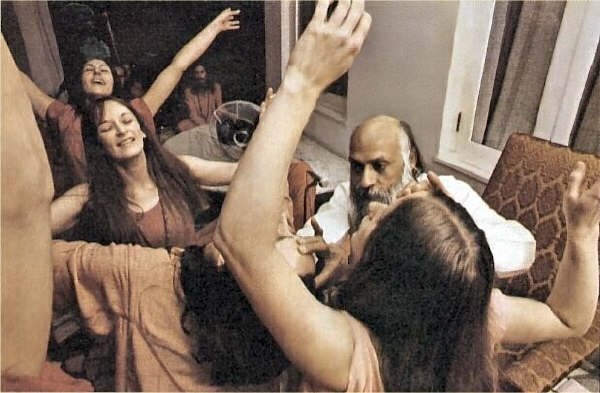These two words have to be understood as deeply as possible: one is perfection, the other is totality. My emphasis is never on perfection but on totality. The old religions have been teaching you for centuries to be perfect. You cannot be perfect; nobody can be perfect. Even God is not perfect — because to be perfect means to be dead. If something is perfect then there is no evolution possible anymore. Perfection means the full point has come, the cul-de-sac; the road ends. Now you are stuck, nowhere to go. You cannot come back — because how can a perfect person come back? That will be becoming imperfect again. You cannot go ahead because you have become perfect; there is nothing ahead. Existence is imperfect and will remain so.
I don't teach perfection. Perfection simply creates neurosis in people. Perfectionists are neurotics; they drive themselves crazy in trying to be perfect, because they are trying to do the impossible.
I teach totality; I teach wholeness, not perfection. Be total in whatsoever you are doing. Be total. If you are angry, then be totally angry. If you are in love, then be totally in love. If you are sad, then be totally sad. Don't be halfhearted in anything. That is a totally different approach towards life.
The perfectionist will say, "Never be angry, never be sad." The person who believes in totality will say, "Whatsoever is the case, just be total in it. Don't be halfhearted, don't hold yourself back. Go into it totally."
Then life becomes really a tremendous adventure. Then even sadness is beautiful when it is total. If you can cry and weep totally, then even crying and weeping has a beauty of its own. It will refresh you, it will rejuvenate you, it will unburden you. If you can be totally sad you will come to know something immensely beautiful in sadness which no joy can ever give to you, because sadness has depth; joy is shallow. A person who has not known total sadness has missed a great experience of life.
And total anger also has its own beauty. It will give you the experience of boiling at one hundred degrees, of intensity, of passion, of fire, of becoming aflame. And the miracle is: the person who can be totally angry can be totally compassionate too, because anger will teach him compassion. And sadness will teach him ways of being blissful.
My approach is not that of a perfectionist; I am utterly against it. It has destroyed humanity. It has driven the whole of humanity into a kind of madness. The whole idea has to be dropped. We have to learn a new language — the language of wholeness. And I call a person holy when he is whole in whatsoever he does.
If you are doing cleaning, then do it totally. Then be utterly lost in it, and it will give you as much as a musician gets when he gets lost totally in his music or a dancer gets when he is utterly lost into his dance. Even cleaning the floor or cooking the food or taking the bath or going for a morning walk — anything.
Let this be your foundation of life: that whatsoever you are doing at the moment, be utterly lost into it. Nothing of you should be left behind. Don't keep any reservations. And you will come out of it immensely benefited, enriched.
OSHO


